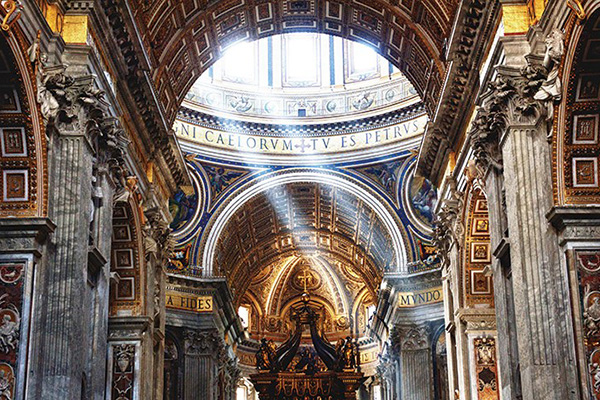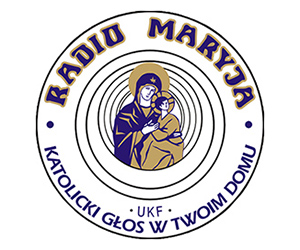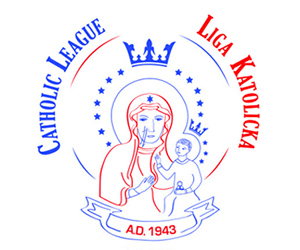
November, without any doubts, can be called the eschatological month. It begins with the Feast of All Saints, after which we commemorate all the Faithful Dead on the next day, and at the end of November is Sunday in honor of Christ the King of the Universe. Eschatology is a branch of theology that talks about the last things, which is generally about what awaits man after death. More precisely, eschatology indicates to the Christian the purpose and meaning of his life, which is the Kingdom of Heaven. In undertaking this reflection, we will try to answer the question whether the Church is God’s Kingdom on earth.
It is impossible to talk about what the Church is without taking into account its eschatological dimension, because Christianity does not exist without reference to the future in which it seeks the meaning and profound meaning of faith for man’s earthly pilgrimage. Contemporary theology is rediscovering the great importance of the eschatological dimension for a proper understanding of the Gospel and thus for the very mission of the Church. The mystery of the Church in the perspective of the Kingdom of God is included mainly in the Dogmatic Constitution on the Church Lumen Gentium of the Second Vatican Council. In our reflection, we will focus mainly on the analysis of a few points of this document that are devoted to the topic of the relationship of the Church with the Kingdom of Heaven.
The starting point for the Council Fathers is to define the Church as a mystery. The identity of the Church does not appear in itself, but in relation to the Divine Persons and to the economy of salvation. It is enough to look at the layout of the first chapter of Lumen Gentium, where the second point is devoted to God the Father, the third is about the Son of God, the fourth is about the Holy Spirit, and the fifth is about the Kingdom of God. In this way, ecclesiocentrism was avoided – it is not the Church that is at the center, but Christ. The ecclesiology of the Second Vatican Council is therefore a Christocentric ecclesiology. In the Constitution on the Church, in the modern candle Gaudium et Spes, we read: “For the Word of God, through which everything was made, became flesh itself, so that the perfect man would save everyone and made everything possible. The Lord is the goal of human history, the point to which the desires of history and civilization turn, the center of mankind, the joy of all hearts and the fullness of their desires ”(GS 45). It must be said that in Lumen Gentium the mystery of the Church is also considered in relation to two other mysteries: the mystery of the Trinity and the mystery of the Incarnation of the Word. In this way, the Second Vatican Council presents the Church both in her nature and in her mission.
The term mysterium used in reference to the Church is an introduction to understanding the Church as a sacrament. Lumen gentium, already in the first point, calls the Church “a sign and instrument of intimate union with God and of unity for the whole human race” (LG 1). Considering the relationship between the Church and the Kingdom, it should be noted that in none of its texts, the Second Vatican Council calls the Church “a sacrament of the Kingdom of God,” although such an idea can be found in various commentaries. The definition of the Church as a sacrament broadens the understanding of her mystery and identity to an eschatological dimension, because it indicates the ultimate and universal plan of God’s salvation, realized in the Church and by the Church: “And the Father has forever foreseen and predestined all the elect, so that they may become like his Son. who was to be the firstborn among many brethren ”(Rom 8:29). And he decided to gather believers in Christ in the Holy Church, which from the beginning of the world, shown by types, miraculously prepared in the history of the nation of Israel and in the Old Covenant, established in the end times, was revealed by the outpouring of the Spirit, and at the end of the ages it will reach its glorious completion” (LG 2).
The Second Vatican Council indicates the Church’s eternal and permanent presence in the history and economy of salvation. For the Church was founded at the beginning of the world, and then developed in subsequent phases of the history of the Chosen People. He appeared to the world on the day of Pentecost, and will be full at the end of time. The Church exists to “reveal the mystery of His [the Lord], though under a cover, faithfully in the world, until it is finally revealed in full light” (LG 8). The constitution Gaudium et Spes adds: “In this earth the kingdom is already present in secret; and its accomplishment will take place with the coming of the Lord (GS 39). Here we can see the eschatological dimension of the Church, which is both an unveiled and a hidden mystery. This is due to its theandric (divine-human) nature and the dynamics of waiting for final fulfillment.
The Church is not only divine and human at the same time. The Church defines her original and deep character with the horizon of her destiny, which is eternity and heaven, before her eyes. Christianity is a constant reference to eschatology, although one is still on the way towards eternity. The Church constantly looks up to heaven and talks about it, but also talks about a man who struggles with the world. Hence the known tension between what is already there and what has not yet come. The Church should not be equated with the Kingdom of God, because it is a reality that draws closer to it and anticipates it. We find confirmation of the above words in Lumen Gentium, where we read: “The Church, that is, the Kingdom of Christ, already present in mystery, grows visibly in the world by the power of God” (LG 3). It should be emphasized that, according to the Council, the Kingdom of God is not only something for the future, but is already present in the world. The Church, as a community of believers in God’s promise, is an evidence of His presence, and even His presence: “To fulfill the Father’s will, Christ inaugurated the kingdom of heaven on earth and revealed to us the mystery of the Father, and by his obedience he redeemed” (LG 3).
The attempt to define the identity of the Church in the light of the Kingdom and its dependence on Christ is noticeable above all in the fifth point of Lumen Gentium, in which we read: “The mystery of the Holy Church is revealed in her foundation. The Lord Jesus started his Church by preaching the good news, namely the coming of the Kingdom of God, promised for centuries in Scripture (…). And this kingdom has shone upon mankind in word, in deeds and in the presence of Christ ”(LG 5). In the above conciliar statement, one can see a connection between the proclamation of the Kingdom of God and the founding of the Church of Christ. Jesus wants the Church and founds the Church to continue his saving work. The Church was born from the proclamation of the Kingdom, and then in the history of the world she becomes the herald of the Good News of salvation, that is, the Kingdom of God, which will be fully revealed to us at the end of time.
On the other hand, the most important words of the constitution Lumen Gentium, which speak of the interdependence of the Church and the Kingdom of Heaven, are the following statements of the Council Fathers: of all nations and is the seed and foundation of this kingdom on earth ”(LG 5). These words direct our attention directly to the present in the Gospel according to St. Mark the metaphor of a seed thrown into the ground that germinates and grows (see Mark 4: 26-29).
We can therefore say that the Church, but only in a metaphorical sense, is the Kingdom of God, which is fully revealed in Jesus Christ (in His works, events and miracles). The more faithful he is to his Founder, the closer he comes to the Kingdom, that is, to God’s reign. In this way, the Church is not only a means or instrument of salvation, but also becomes the earthly form of its realization and the seed of the kingdom that will fully come at the end of time..
The Church is related to the Kingdom of God as “seed and beginning”, which means that these two realities cannot be equated with each other. The Second Vatican Council eliminated once and for all the concept of equality between Church and Kingdom, a concept that was put forward reductively by medieval theology and its “Christian republic”. This is confirmed by the declaration of Dominus Iesus: “To affirm the existence of an indissoluble bond between the Church and the Kingdom does not mean, however, to forget that the Kingdom of God – also considered in its historical form – is not identical with the Church as a visible and social reality” (DI 19). The Church is not the Kingdom of God, but only its anticipation. There is a very close relationship between the Church and the Kingdom, but it is not possible to connect these two realities with each other. The presence of the Kingdom of God in the Word, in the person and in the works of Christ cannot be equated with the Church. The kingdom of God is neither an organization nor an institution, because it does not depend on earthly and human factors. The church is a place of divine action, and therefore the organ and instrument of salvation, but it cannot be said that it is the Kingdom of God on earth.
It should be emphasized very strongly that without the eschatological dimension and without the tension between the already mentioned and not yet mentioned, the image of the Church would be incomplete or even false. In this way we come to the most important point of our reflection on the identity of the Church in the light of the Kingdom of God, and we can say that the Church does not exist for itself, but is an instrument in God’s hands to prepare all people for the final encounter with the Lord in parousia, or His second coming in glory.
The Church, aware of its temporality, truly becomes a community of hope – it is the bearer (by its very nature) and the proclaimer (beyond its visible limits) of the Good News of the Kingdom of God. In God’s plan, the Church, in view of the Kingdom to come, is a promise of future immortality, a reality that is still imperfect and incomplete. This is what the conciliar statement that the Church is “the seed and the beginning” of the kingdom of God means. Reaching once more to Lumen Gentium, we read that the Church is “a mighty seed of unity, hope and salvation for all mankind” (LG 9) and that “slowly growing up, she longs for a Kingdom fully accomplished and with all her strength she awaits and desires union. with his King in glory” (LG 5).
The celebration of All Saints opened for us a month of reflection on eschatology. It reminds us that the purpose of our existence is not death, but eternal life! The apostle John writes that “it is not yet revealed what we will be. We know that when this is revealed, we will be like him, for we will see him as he is “(1 Jn 3: 2). The saints, friends of God, assure us that this promise is not pears in the sky. Saints are not superhumans, they are not born perfect. Before attaining the glory of heaven, they lived a normal life, with joys and sorrows, efforts and hopes. However, when they came to know God’s love, they followed it with all their heart. They spent their lives serving others, endured suffering and difficulties, not hating but responding to evil with good, spreading joy and peace. Saints are men and women who had joy in their hearts and passed it on to others. This is the path of holiness! This is the way to the Kingdom of Heaven! Thanks to the saints, you can taste its reality on earth!
At the end of November, however, we will celebrate the Solemnity of Jesus Christ the King of the Universe, which shows us the Son of Man not only as the Ruler and Judge of history, but also as the Shepherd who separates sheep from goats. The basis for this eschatological sorting of the herd is charity. The Son of Man who judges all the nations gathered before Him is also the Shepherd who first gave an example of service and love for the good of the other: “I will find the lost [sheep], I will bring back the lost one, I will fix the wounded, strengthen the sick, and strengthen the fat and strong one. he protected” (Ezek 34:16). He is not a tyrant or a lofty ruler, but a Servant-King, a Love-King who sets them free: “I will deliver them from all the places where they have been scattered…” (Ezek 34:12). These are places where the King is not recognized, where it is not love but selfishness. Let us make sure that such places never were our hearts, but that Christ and His Gospel reigned in them. Then, for people far from the Church, we will become signs of the promised Kingdom of God.
Ks. Mateusz Tarczyński







